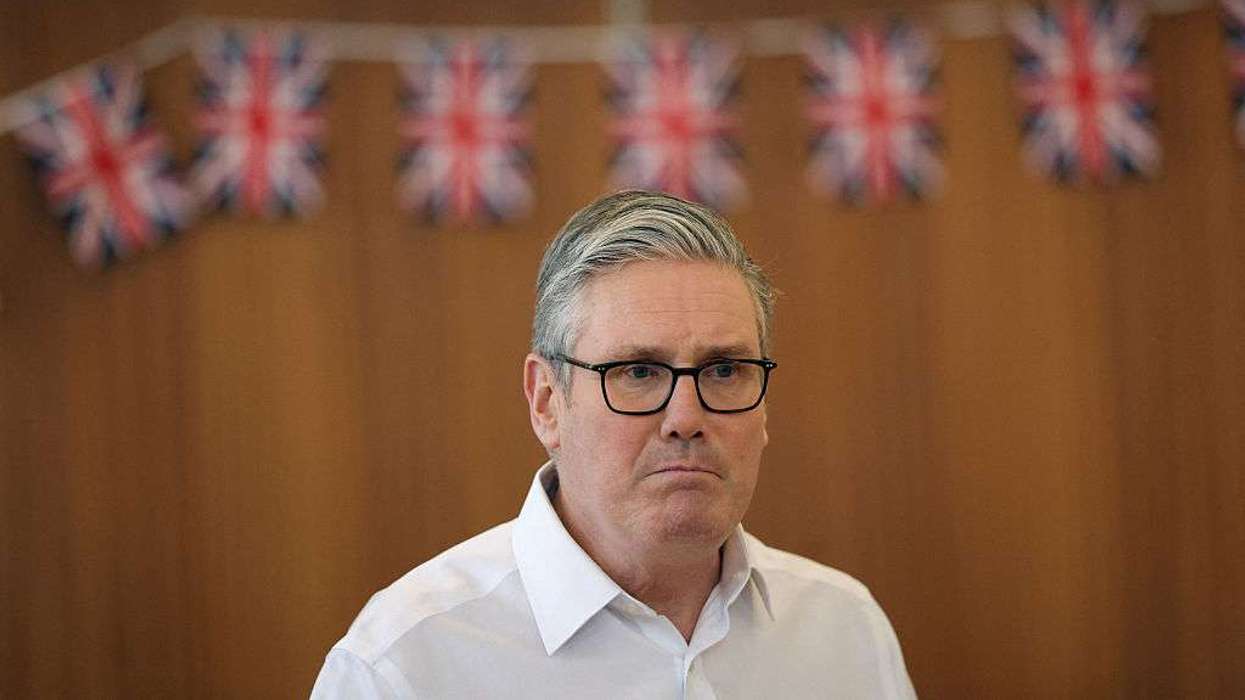POLITICAL parties fighting the general election must show courageous and compassionate leadership when it comes to dealing with people with mental health challenges.
That is the plea from global mental health advocate, Poppy Jaman.
A world-wide survey of 12,000 workers in 12 countries, including the UK, revealed that more than half of those in work have experienced or are experiencing mental health challenges.
These are people who show signs of anything from anxiety to bipolar disorder, the founder and executive vice chair of MindForward Alliance told Eastern Eye.
“The pandemic did horrendous things, but one of the things that it did do is it put health on the boardroom agenda of every organisation, regardless of what type of organisation you were,” said Jaman.
“It feels like there was a lot of initiatives at that point in time, and I think there's an element of, well, actually, that's sort of done now, what's the next new thing?
“With mental health, you have to put in place a strategy and an investment that's going to outlive your tenure.
“It can't be a political football, because I'm not going to be seeing the seeds of what I sow for another three to 10 years, and that takes courageous leadership, that takes bravery.”
Initiative fatigue
She suggested that organisations had “initiative fatigue” and failed to understand that business and output would suffer unless they looked after their workers.
“If you look at some of the rhetoric, not a lot, but I think it's naive and old-fashioned thinking, where there's this sort of, oh well, you know, everything's gone a little bit soft.
“When you're talking about mental health, it's all a bit weak, and we need to toughen up.
“There is that kind of narrative still very much in different societies that when you're talking about mental health, it's a soft subject, and what our research shows, it's absolutely not a soft subject.
“It's business imperative, if you're not doing this, you're going to be losing people and money.”

Jaman is also concerned by the words used in the mainstream party political manifestos when it comes to dealing with mental health challenges.
“Work has been a great part of my mental health recovery,” said the chair of the Global Business Collaboration (GBC).
“Meaningful work in the right place with the healthy environment has been shown by a collection of research that if you have the right job in the right place, with the right support, it is a better intervention for your recovery than some psychiatric services.”
The Conservatives have made clear in their pledges that they intend to “reform disability benefits” when it comes to personal independent payments or PIPs.
“We will improve PIP assessments to provide a more objective consideration of people’s needs and stop the number of claims from rising unsustainably,” said its manifesto.
“While people suffering with mental health conditions face significant challenges, it is not clear that they always face the same additional living costs as people with physical disabilities.
“We will look at the best way to provide support, including whether treatment or services could be more appropriate for some people than a monthly cash payment, while also delivering a dramatic expansion in mental health support.
“People are now three times more likely to be assessed as not fit for any work and put on the highest tier of sickness benefits than they were a decade ago.
“We will change the assessments from September 2025 so that those with more moderate mental health issues or mobility problems who could potentially engage with the world of work are given tailored support, instead of being written off on benefits.”
Workplace assessments
The manifesto said that the Office for Budget Responsibility thinks that “reforms will reduce the number of people on these benefits by 424,000”.
Some people who have undergone assessments are critical of the process.
In May, the Equality and Human Rights Commission (EHRC) started its investigation into the Department for Work and Pensions' (DWP’s) behaviour towards some claimants.
It said it was “extremely worried” and was looking at whether the DWP failed to make reasonable adjustments for people with learning disabilities or long-term mental health conditions.
The investigation was prompted after MPs urged the EHRC to examine the deaths of vulnerable claimants, by suicide and other causes, between 2008 and 2020.
Labour has also taken a tough stance on those out of work with mental health issues.
“Long waits for treatment of health conditions, particularly mental health, are contributing to the rise in economic inactivity,” said its manifesto.
“Labour will reform employment support so it drives growth and opportunity.
“Our system will be underpinned by rights and responsibilities – people who can work, should work – and there will be consequences for those who do not fulfil their obligations.”
Jaman was concerned by use of the word “consequences”.
“What awful language to be using when we're talking about culture and leadership and a society where we're trying to make everybody feel safe,” she said.
“For me, there's a lack of compassion around mental health, and it's all been set with the economy in mind, rather than humanity.
“Why you can't be human, compassionate and create a mentally healthy society and it be synonymous with a good economic policy, I don't understand, because they're not on the opposite sides.
“If people are healthy, people will do more.
“The question that's not been asked is, why are all these people not working?
“Why are people worried about money, and why have people got so much health anxiety, and what do we do about that?”
Global survey
The world-wide survey was part of the Global Business Collaboration for Better Workplace Mental Health.
It launched the initiative to make workplace mental health a priority at the World Economic Forum in Davos in 2021.
In the past three years, the GBC has got pledges from almost 200 companies in 20 industries and 62 countries to improve the workplace when it comes to mental health.
The positive news is that 65 per cent of GenZ (the younger generation) are likely to report their challenges.
But shame remains a problem with almost seven in 10 (69 per cent) who took time off because of their mental health told the poll that they felt stigma.
The survey also indicated that senior leaders speaking about their own experiences of dealing with challenges made a difference in the workplace.
Yet not enough employers are training managers to deal workplace problems, the study found.
“The manifestos have got some great stuff around mental health,” said Jaman, “but not nobody has gone, how do we train up line managers when you look at what are the work-related stresses?
“People talk about workload first, and then they talk about manager behaviour and attitude.
“But when you look at the survey, only two in five managers have ever been trained with skills.
“Where their managers have been trained in skills around mental health and supporting people, it significantly lowers the risk of people wanting to leave their job.
“It increases people’s motivation, and it significantly reduces people’s behaviour – anger, annoyance and irritability towards customers and clients and peers.
“It's really simple to train up people to do their jobs well, so that they themselves aren't stressing out.
“Yet, nowhere do we see that as a thing that’s been mandated, and we've been talking about this for years.”




